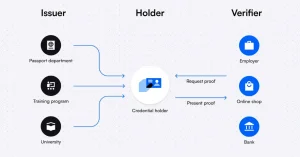
Trade show logistics require careful preparation and planning. Shipping, freight handling and material management are integral parts of successful exhibitions.
Find the most cost-effective means of shipping equipment directly to the venue in time for setup. Consider teaming with a logistics provider with expertise in trade shows – these experts offer advanced warehousing and other innovative solutions designed to minimize costly mistakes.
Planning and Organization
Logistics play an integral part of a brand’s booth setup and exhibit experience at trade shows. From transportation coordination and handling on-site handling, to packing for return shipping and preparing return shipment containers – efficient logistics planning plays a crucial role. So it is critical that businesses create a detailed logistics plan weeks or months in advance to ensure everything runs smoothly at each show they attend.
Setting deadlines and events are the cornerstone of an effective trade show logistics plan, and setting them early can make or break your project. Don’t risk missing a key milestone or deadline with your tasks by failing to set and keep them. Be it wall calendar or Google Calendar sharing, assigning each task responsible individuals or teams can help strengthen accountability and prevent missed timelines.
Reach out to the event organizers for full shipping instructions and schedules regarding advance warehouse storage and direct-to-show delivery, then compare material handling fees between these options in order to identify which is more beneficial to your company.
Inventory Management
Companies exhibiting at multiple trade show venues throughout the year can benefit from having a warehouse located nearby to the trade show venues, especially when shipping costs and time required to coordinate shipments are reduced significantly. It also facilitates better tracking of inbound freight to each show while shortening handling times at each venue by decreasing transportation routes between events.
Marking packages clearly with their essential information such as booth number, destination and handling instructions is another essential step in successful shipping. Cushioning materials like foam padding should be utilized within sturdy boxes designed to withstand transit conditions.
Trade show logistics specialists can identify the optimal mode of transport for each shipment and ensure it arrives on time at convention centers for move-in. Furthermore, these experts can help companies avoid costly forced freight charges by making arrangements before the event so all their shipments fit onto one truckload.
Transportation
Effective trade show logistics require precise timing, not only from your warehouse to the event but also during booth design, material procurement and order placement. Your logistics partner should provide an adapted freight shipping plan which accounts for these deadlines.
Logistics companies that offer end-to-end transport services often feature one point of contact for outbound and return transportation, making this option more cost effective; however, you should expect possible pricing premiums due to union contracts or sponsorship deals.
Decisions surrounding shipping directly to an event venue versus using an advance warehouse can have a considerable effect on logistics costs, making it essential to understand both options thoroughly and work with an experienced logistics provider who can advise on advanced warehousing, insurance requirements and trade union membership issues. As soon as you begin planning trade show logistics you’ll have more choices for shipping and storage solutions available to you.
Contingency Planning
Effective trade show logistics strategies must account for many unpredictable elements outside your control, including transportation issues, technology malfunctions, material delivery delays, and adverse weather. Plan for these occurrences so as to maximize event success.
Partnering with an event-focused logistics company can solve many logistical issues associated with inbound and outbound shipping. Professionals in this field offer pre-show shipping coordination services as well as storage/transport solutions and material handling on-site.
After your show is over, it is also essential to arrange for post-show pickup or warehouse storage of any remaining exhibit materials. Items left behind after their pullout date could be considered trash or subject to storage fees; so if you work with a dedicated logistics provider it would be wise to inform them a few months in advance to avoid last minute rush that could result in errors and ensure exhibit materials arrive without missing deadlines or incurring storage fees.



